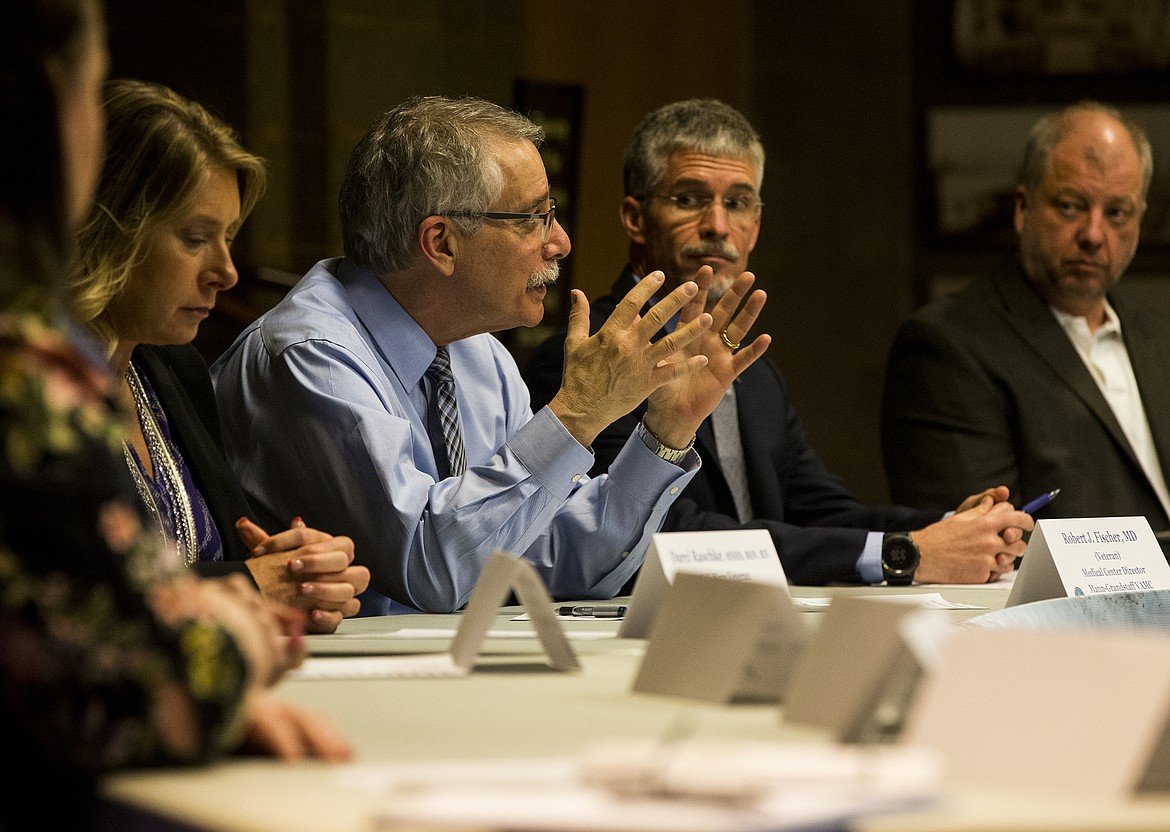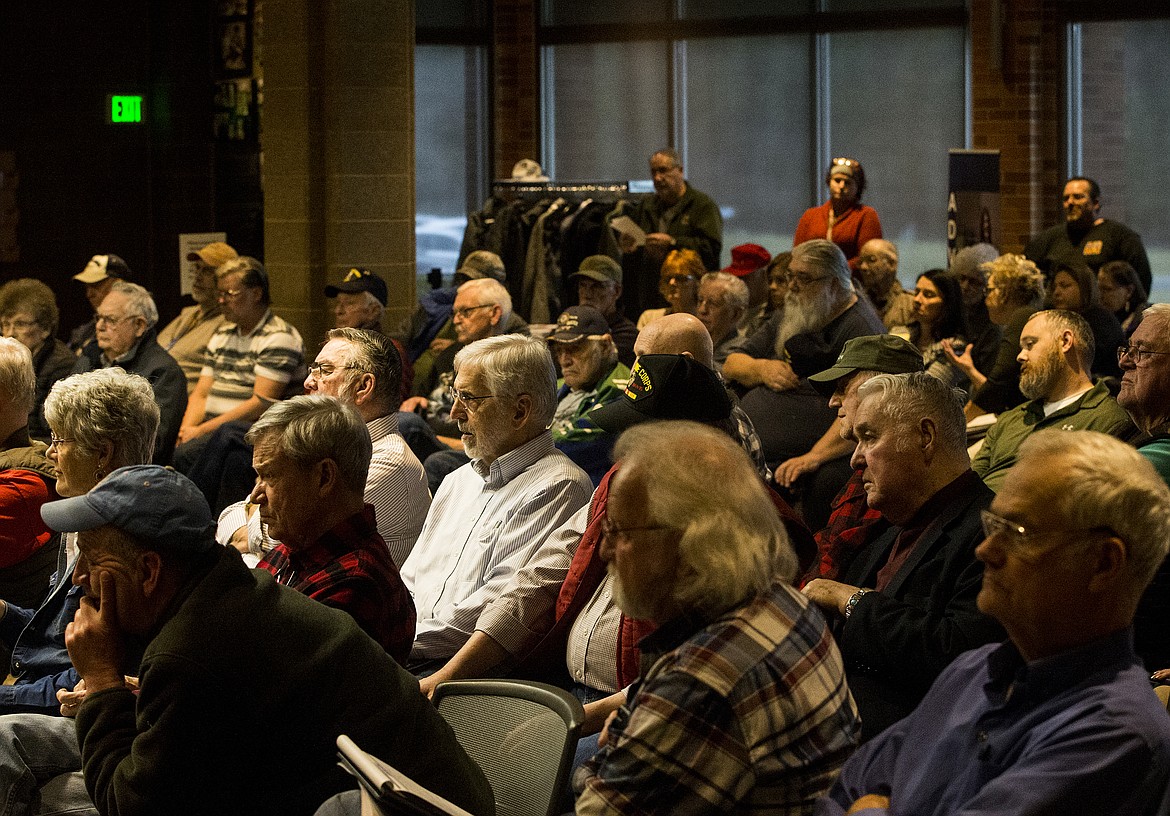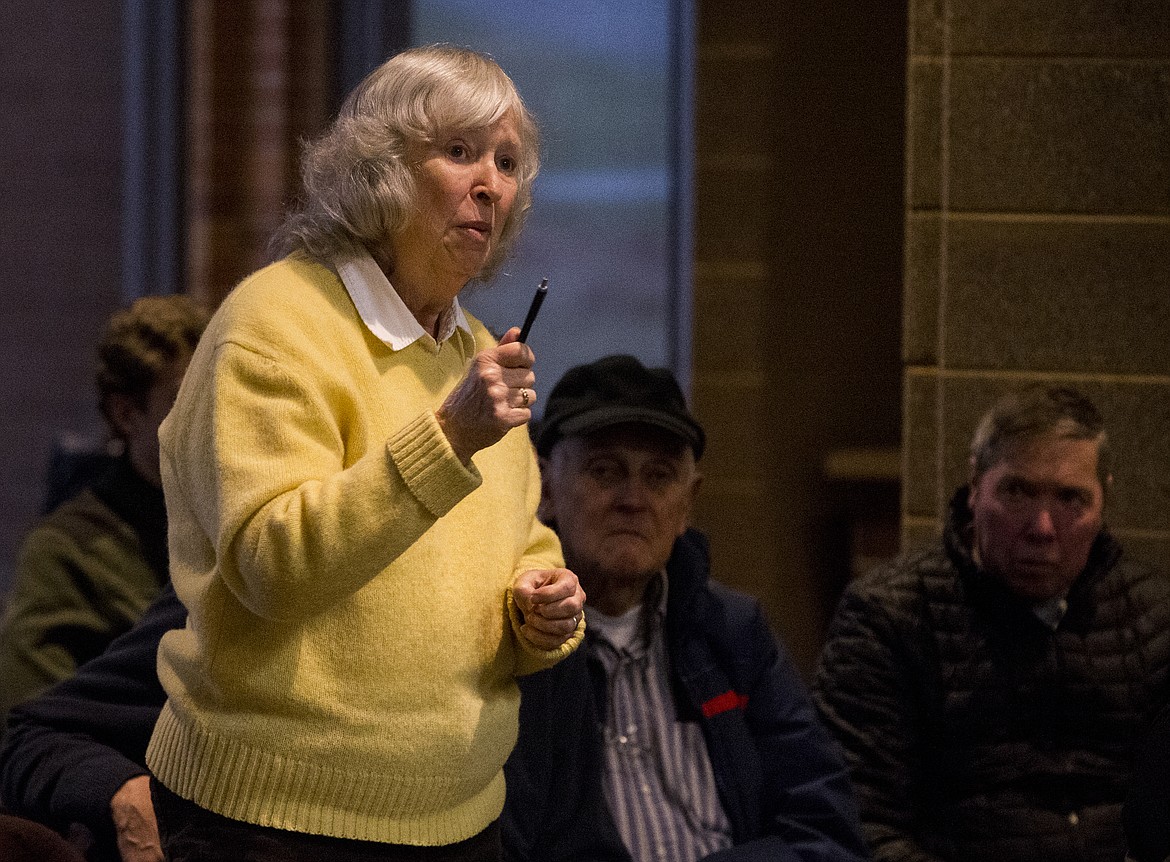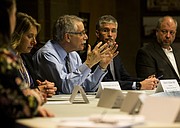Veterans air VA concerns
COEUR d’ALENE — Local veterans had the chance to address the strengths and weaknesses of their health care with VA officials Tuesday afternoon in a veterans town hall.
The event — which was held in the community room of the Coeur d’Alene Public Library — was presented by employees from the Mann-Grandstaff VA Medical Center in Spokane, as well as the North Idaho VA clinic in Coeur d’Alene.
Robert Fischer, the new director of the medical center, emphasized that the goal of the town hall was for veterans to have their voices heard.
“The purpose of this event is not for me to speak to you,” Fischer said, “but really for you all to speak to us.”
After he highlighted some upcoming changes at the VA medical center in Spokane, Fischer opened the discussion to the veterans.
Laura Martin-Spetter, a retired Air Force veteran from Post Falls, spoke candidly about the difficulty she has faced in getting her prescription medication from VA doctors since she and her husband moved to the area in November.
“Yes, there is an opioid crisis in America, but not all of us are part of it,” Martin-Spetter said.
According to Martin-Spetter, the VA office in Seattle determined in just three days that she needed to reduce her medication dosage by half.
“There are a lot of us out there who cannot function without these pills,” she said. “I don’t want to be on these, either.”
Martin-Spetter said the medications she was taking were prescribed by physicians at Walter Reed National Military Medical Center in Bethesda, Md., as well as by doctors at the National Institute of Health.
“When does it stop?” she asked VA officials. “When do I get to claim my body and say, ‘enough is enough?’”
Later during the town hall, her husband, Geoff Spetter, shared his trouble scheduling an appointment with a psychiatrist after a mental health breakdown several weeks ago.
“I don’t get to see an actual psychiatrist until April 26. That’s over a month,” the Army veteran said. “Talking and counseling are not helping me, so what’s the deal?”
Fischer apologized to each for the mistakes and said that he would take down their information and work quickly to correct the situations.
One veteran, who said he has used the VA health care system since 2002, noted the high rate of attrition among primary care providers, meaning each visit feels like starting from scratch.
Fischer agreed that turnover among clinicians poses a large problem, and said the onus falls on him if the problem isn’t corrected.
“If we continue to have this turnover rate,” Fischer said, “then you need to get rid of me, because that means I haven’t been successful.”
Additionally, he underscored that the regional VA had reduced its employee vacancy rate by 36 percent since 2017.
Fischer also said the medical center in Spokane will expand its daily urgent care hours from 10 to 12 hours in July, and possibly to 24 hours by next year.
Brenda Baker, manager of the North Idaho clinic, said veterans in Kootenai County can receive primary care, physical therapy, behavioral health services and eye care at the Coeur d’Alene clinic.
The clinic hopes to treat veterans as well as possible in return for their service, she said.
“They’re always welcome to come see us,” Baker said. “… we try to promote a culture of cooperation and family, and these veterans are our family.”







